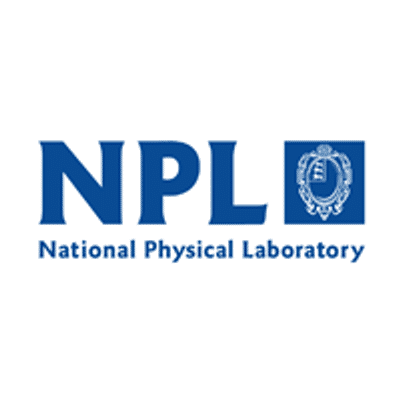
Science and Research Internships
Thinking about a career in science but unsure how to get started? Science and research internships are your opportunity to test out a career in the industry over the summer holidays.
You’ll gain practical experience, build your CV and figure out what you want to do before you graduate. Read on to discover science and research internships and how you kickstart your career

What does a science and research intern do?
Science and research internships usually take place during the summer and last between one and six months. That’s plenty of time to add valuable experience to your CV. You’ll also be paid for your time.
As a science intern, you’ll jump right into projects working alongside industry professionals, turning classroom learning into real-life experience. Whether you’re passionate about the environment, love working with data or want to boost your lab time, there’s an internship just for you.
Your day-to-day tasks depend largely on the type of internship you do, but you’ll analyse data, explore research questions and contribute to projects that’ll make a difference. You could find yourself analysing climate patterns, helping to develop new ways of working, or contribute to important discoveries.
Every internship is different, but you'll build valuable skills that boost your confidence when you return to university and give you serious work experience before you graduate.
Here’s what one intern got up to whilst at Attica Zoological Park as a marine mammal trainer:

I developed the following skills: Diet preparation of dolphins, pinnipeds and penguins. Assisting the training sessions. Assisting with vet procedures of Atlantic bottlenose and black-sea bottlenose dolphins and observing behaviour. Preparation of nutritional enrichment. Introduction to the training method of dolphins. Habitat security and safety. Marine Mammal Trainer, Attica Zoological Park
What types of science and research internships can you do?
There are so many opportunities that’ll give you the chance to get that all-important lab experience or even work out on the field. Science is a HUGE industry, but can usually be split up into the following:
Health and medical
Environmental
Forensic
Agricultural
Technology and engineering
Space and astronomy.
Many job titles work across different science fields. You could apply for a lab assistant intern role in healthcare, environmental research, or food science. The core responsibilities are often similar. Some science internships available include:
Plant scientist
You'll study plant biology and explore how plants interact with their environment.
Data scientist
If you love working with data, you'll analyse information to help companies understand their customers, improve their products, or predict future trends.
Lab assistant
You’ll work in a laboratory prepping samples, setting up equipment and conducting experiments and tests.
Pharmacist
You'll work alongside experienced pharmacists in hospitals or pharmacies, filling prescriptions, answering medication questions, and helping with basic patient care like taking blood pressure.
Research assistant
You’ll support scientists in a lab setting by analysing research, helping to conduct experiments and creating reports to present to team members and management.
What are biomedical internships?
Biomedical scientists are behind 70% of all medical diagnoses and handle over 150 million samples every year. The work you do as a bioscientist can literally save lives.
DID YOU KNOW? There are currently more than 40,000 biomedical science posts in England. So there’s plenty of opportunity to join this growing field.
As a biomedical intern, you’ll work alongside researchers and pharmaceutical experts in labs. There are opportunities all over the UK and can include working for hospitals, universities and research centres.
Most internships require you to be studying an IBMS-accredited biomedical science degree, so check if your course meets these requirements when applying.
Where can you do a science and research internship?
Whether it’s a hospital, university research centre or pharmaceutical lab, there are loads of companies looking for the future of science to join their internship schemes. Here are some of the top employers you can work for:
Ever wanted to know what it’s like to work for Cancer Research UK? This is what one intern thought about their time there:

“Really lovely place to work. Everyone is there for the right reasons and you feel part of the team. Never once have I felt out of place or excluded or just 'like a cog in a wider machine’. I am now much more confident in Microsoft Outlook and Teams. I can effectively schedule meetings and participate effectively when working from home. I am more confident searching literature on Google Scholar, able to read papers at a faster rate and analyse the findings with a high level of accuracy. My writing skills have also developed. I am now more confident writing for different audiences and tailoring my writing style to the client of interest.” Social and Behavioral Intern, Cancer Research UK
How much do science and research interns earn?
It all depends on the company you work for, but as an intern, you can expect to earn between £16,000 and £25,000 (pro rata).
You'll get holiday pay during your internship, and some companies might also offer extra benefits. It's worth asking about what's included when you apply.
Science and research can offer some really well-paid careers. Once you’re fully qualified you could start earning between £28,000 and £35,000 per year. You could earn around £90,000 per year the more experienced you become within your field.
How do you apply for a science and research internship?
Most employers start recruiting science interns quite late, around March and April, but many hire all-year-round. It’s best to start looking the moment you start your second year of university.
The recruitment process can vary between employers, but here’s what to expect.
You’ll start with an online application and CV. Include any relevant experience, university projects, societies, or part-time work all count. Remember you’re there to learn, so employers aren’t looking for years of experience.
Some employers use online tests to see how you think - usually numerical or logical reasoning. Then you'll either have a phone interview or be invited to an assessment day with group tasks and face-to-face interviews.
You can find application and interview advice right here. And keep scrolling down the page to apply for a science internship.
























